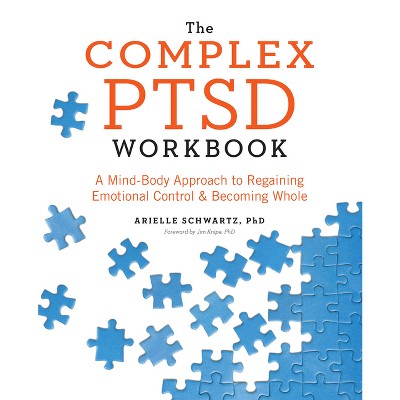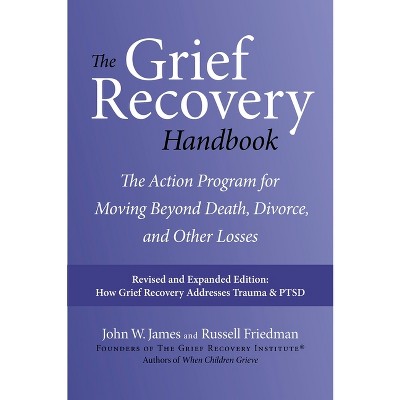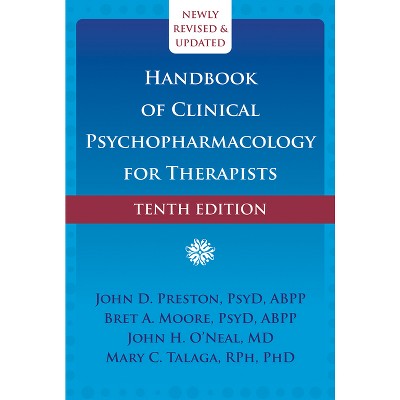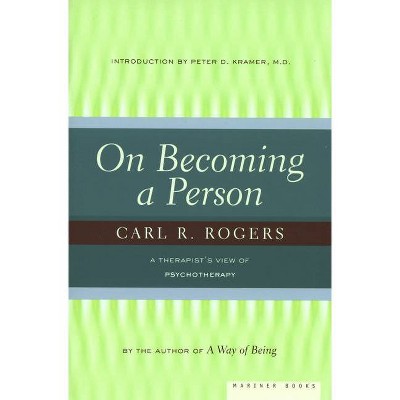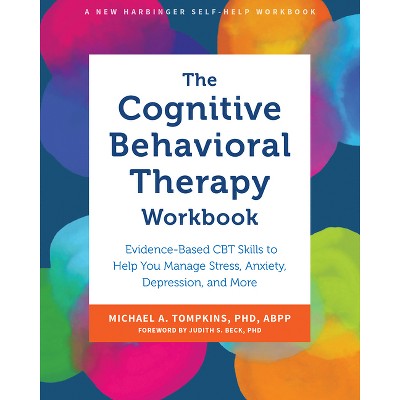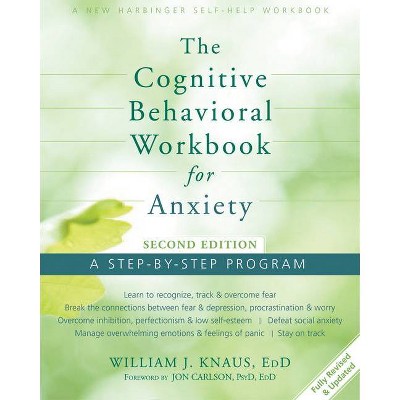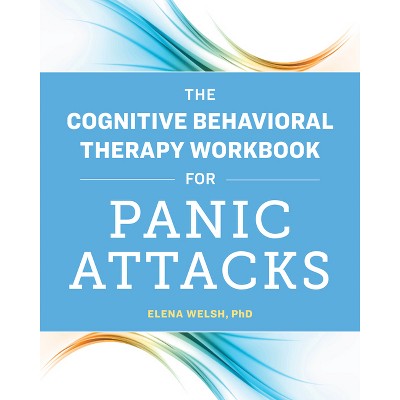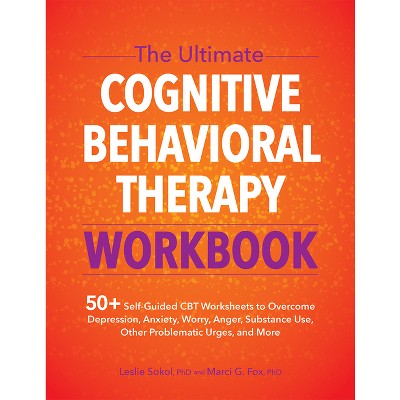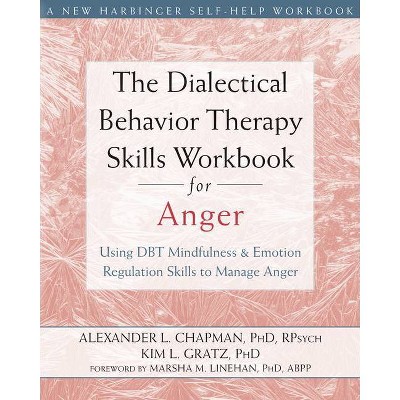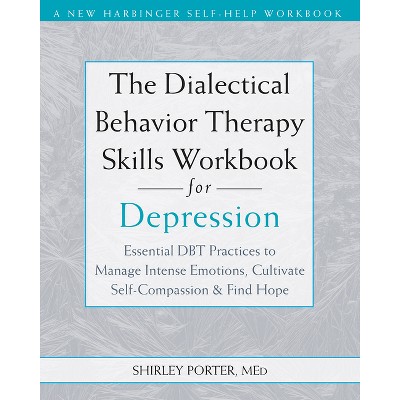Sponsored

The Cognitive Behavioral Therapy Workbook for Leaders - by Julian Barling & Simon A Rego (Paperback)
Pre-order
Sponsored
About this item
Highlights
- "Essential tools for all leaders to balance between a high-performance and high-care culture.
- About the Author: Julian Barling, PhD, is the Distinguished University Professor, and Borden chair of leadership at the Smith School of Business at Queen's University in Kingston, ON, Canada.
- 192 Pages
- Self Improvement, Self
Description
About the Book
Leaders are expected to be strong, dynamic, intelligent, and level-headed--even in the face of extraordinary pressures. Written specifically for business leaders and managers, this evidence-based guide offers skills grounded in cognitive behavioral therapy (CBT), as well as dialectical behavior therapy (DBT) and acceptance and commitment therapy (ACT) to help combat stress, prevent burnout, build resilience, and lead more effectively.Book Synopsis
"Essential tools for all leaders to balance between a high-performance and high-care culture."
--Calvin McDonald, CEO of Lululemon Athletica Inc.
A powerful, first-of-its-kind, evidence-based guide to help you manage stress, show up as your best self, and lead more effectively--even under intense pressure.
Leaders are expected to be strong, dynamic, intelligent, and level-headed. As a leader, you may feel compelled to embody a "superhuman" standard--especially under pressure--or make personal sacrifices in order to get a project done well and on time. You might ignore the warning signs of mental health issues such as sleeplessness and fatigue--after all, who has time to sleep? And, to make matters worse, you may rely on unhealthy behaviors such as consuming alcohol to deal with the overwhelming stress of daily life. So, how can you break this destructive cycle, prioritize your mental health, and optimize performance?
This workbook offers skills and strategies based in cognitive behavioral therapy (CBT), as well as dialectical behavior therapy (DBT) and acceptance and commitment therapy (ACT), to soothe stress, avoid exhaustion, and build the resilience required to show up as your best self. You'll gain a greater understanding of the specific psychological challenges inherent in leadership positions, the emotional toll it takes professionally and personally, and--most importantly--how to manage these challenges effectively.
As a leader, admitting that you are struggling can be difficult. You may have feelings of shame, or fears of being stigmatized. But when weighed against the increasing costs to your mental, physical, and emotional well-being--all of which impact one's ability to lead effectively--you simply can't afford to ignore it!
About the Author
Julian Barling, PhD, is the Distinguished University Professor, and Borden chair of leadership at the Smith School of Business at Queen's University in Kingston, ON, Canada. He is a fellow of the Royal Society of Canada, the Association of Psychological Science, the Society for Industrial and Organizational Psychology, the European Association for Occupational Health Psychological Association, and the Canadian Psychological Association. He received the Outstanding Career Contribution in Occupational Health Psychology from the European Association for Occupational Health Psychology in 2008; the Distinguished Scientific Contribution from the Canadian Society for Industrial and Organizational Psychology in 2016; and the Lifetime Career Achievement in Research Award from the American Psychological Association, NIOSH, and the Society for Occupational Health Psychology in 2017. He was listed in the top 2 percent of the world's most cited scientists in 2020 and 2022.
Simon Rego, PsyD, is chief of psychology at Montefiore Medical Center and professor of psychiatry and behavioral sciences at Albert Einstein College of Medicine in New York, NY. He is board certified in cognitive behavioral psychology by the American Board of Professional Psychology, certified in cognitive behavior therapy by the Canadian Association of Cognitive and Behavioral Therapies, and certified as a trainer/consultant by the Academy of Cognitive and Behavioral Therapies. He is a fellow of the American Psychological Association (Division 12), the Association for Behavioral and Cognitive Therapies, and the Academy of Cognitive and Behavioral Therapies, and a founding clinical fellow of the Anxiety and Depression Association of America.
Foreword writer Judith S. Beck, PhD, is president of the Beck Institute for Cognitive Behavior Therapy, and clinical professor of psychology in psychiatry at the University of Pennsylvania. She is author of the seminal text, Cognitive Therapy, which has been translated into more than twenty languages.
Afterword writer Tim Coolican "stumbled into" the cosmetics industry, working on Unilever's DermaSilk hair-care brand as an intern. After graduating, he held several roles at Unilever before joining L'Oréal Canada in 2004. Coolican was named president of L'Oréal Paris USA in 2017. He is currently CEO of Milk Makeup, a New York City-based cosmetics and skin-care company.
Shipping details
Return details
Frequently bought together


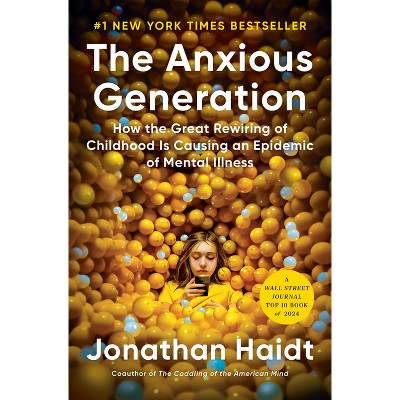

Guests also viewed

